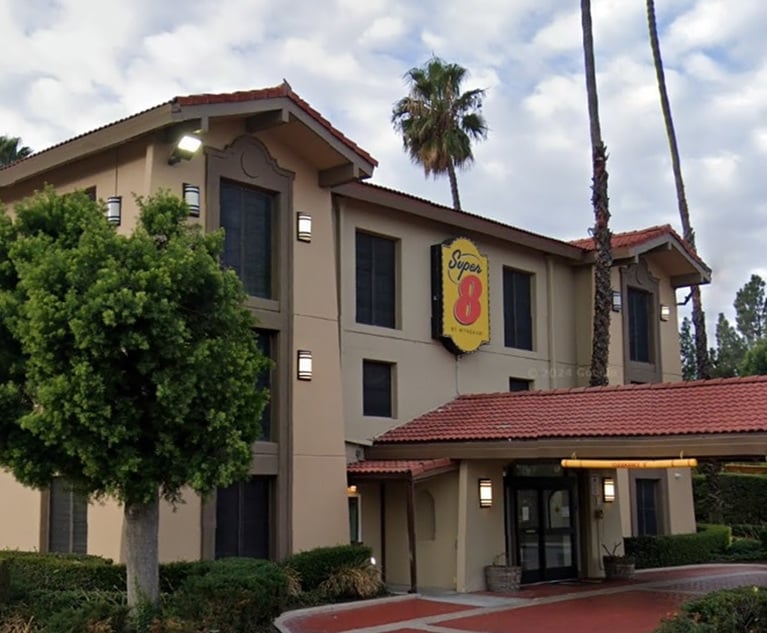Approved Opinions for the Week of August 28, 2017
26-2-4108 Montclair State University v. County of Passaic, et al. N.J. Super. App. Div. (Rothstadt, J.A.D.) (11 pp.) In Rutgers v. Piluso, 60 N.J. 142…
August 24, 2017 at 04:49 PM
11 minute read
26-2-4108 Montclair State University v. County of Passaic, et al. N.J. Super. App. Div. (Rothstadt, J.A.D.) (11 pp.) In Rutgers v. Piluso, 60 N.J. 142 (1972), the Supreme Court addressed the limits of a local government's authority to regulate on-site construction on a state university's property that was confined to its campus. In this dispute, the court was asked to determine whether those limits apply to a state university's construction of a roadway that intersects with an off-site local road. The court held that the state university was not required to obtain local land use approval for the project because the limits imposed by Rutgers applied equally to the proposed development in this case. (Approved for Publication)
59-8-4101 In re: Lipitor Antitrust Litig., 3rd Cir. (Smith, J.) (106 pp.) Plaintiffs, a putative class of director purchasers, end payors, and individual retailers of pharmaceuticals, appealed from the dismissal of their complaints concerning 2 drugs, Lipitor and Effexor XR, in which plaintiffs alleged that defendants, the companies holding the patents to those drugs, fraudulently procured and enforced their patents and entered into monopolistic settlement agreements with potential manufacturers of generic versions of the drugs. Specifically, plaintiffs alleged that defendants entered “reverse payment settlement agreements” that the Court subjected to antitrust scrutiny in F.T.C. v. Actavis, Inc., 133 S. Ct. 2223. The district court dismissed plaintiffs' reverse payment settlement agreement claim upon finding that their allegations were not plausible; the district court further held that plaintiffs failed to plead plausible allegations that the Lipitor patents were fraudulently procured and enforced. On appeal, the court reversed the dismissal of plaintiffs' claims. The court first held that plaintiffs plausibly alleged unlawful reverse payment settlement agreements since the release of the generic Lipitor manufacturer's potential liability far exceeded any saved litigation cost, permitting a plausible inference that the settlement was an inducement to ensure a longer period of monopoly based on patents that defendants believed were at risk of being found invalid or not infringed. The court held that the Actavis standard did not require the specific valuation pleading demanded by the district court, and held that the burden was on defendants to justify large reverse payment settlements. Similarly, for Effexor, the court found that the generic manufacturer received hundreds of millions of dollars in value in exchange for delaying introduction of generic Effexor, off which defendants profited by billions. Finally, the court held that plaintiffs plausibly pled fraudulent procurement and enforcement of Lipitor patents by alleging that defendants submitted false or misleading data to obtain the patent. (Precedential) [Filed August 21, 2017]
25-8-4082 Moon v. Breathless Inc., 3rd Cir. (Greenway, J.) (18 pp.) Plaintiff appealed from the order of the district court ruling that plaintiff's statutory claims were subject to an arbitration clause in an agreement between the parties. Plaintiff began performing in defendant's club pursuant to a contract, which designated plaintiff as an independent contractor and not an employee of defendant, and included an arbitration clause and class action waiver. Plaintiff sued defendant under the Fair Labor Standards Act and the New Jersey Wage Payment Law and Wage and Hour Law. Defendant moved to dismiss plaintiff's complaint and compel arbitration. After limited discovery, the district court granted defendant's motion, finding that plaintiff's claims fell within the scope of the parties' arbitration clause. On appeal, the court reversed the district court's decision. The court first ruled that the parties had not agreed to arbitrate the issue of arbitrability; thus, the presumption that a court would decide issues of arbitrability applied. But the court ruled that the parties had not agreed to arbitrate plaintiff's statutory claims. The court held, under New Jersey law, for an arbitration clause in the employment context to cover statutory claims, the employee must explicitly agree to arbitrate all statutory claims arising out of the employment relationship or its termination, and reflect the employee's understanding of the claims being waived. The court held that the parties' arbitration clause failed to cover statutory claims because the clause referenced contract disputes rather than statutory rights, or reference plaintiff's employment or independent contractor status. The court rejected defendant's argument that plaintiff's claim that she should have been treated as an employee and not an independent contract arose under the parties agreement; instead, the court held that such a claim arose under the FLSA and the New Jersey acts. (Precedential) [Filed August 17, 2017]
This content has been archived. It is available through our partners, LexisNexis® and Bloomberg Law.
To view this content, please continue to their sites.
Not a Lexis Subscriber?
Subscribe Now
Not a Bloomberg Law Subscriber?
Subscribe Now
NOT FOR REPRINT
© 2025 ALM Global, LLC, All Rights Reserved. Request academic re-use from www.copyright.com. All other uses, submit a request to [email protected]. For more information visit Asset & Logo Licensing.
You Might Like
View All



Trending Stories
Who Got The Work
J. Brugh Lower of Gibbons has entered an appearance for industrial equipment supplier Devco Corporation in a pending trademark infringement lawsuit. The suit, accusing the defendant of selling knock-off Graco products, was filed Dec. 18 in New Jersey District Court by Rivkin Radler on behalf of Graco Inc. and Graco Minnesota. The case, assigned to U.S. District Judge Zahid N. Quraishi, is 3:24-cv-11294, Graco Inc. et al v. Devco Corporation.
Who Got The Work
Rebecca Maller-Stein and Kent A. Yalowitz of Arnold & Porter Kaye Scholer have entered their appearances for Hanaco Venture Capital and its executives, Lior Prosor and David Frankel, in a pending securities lawsuit. The action, filed on Dec. 24 in New York Southern District Court by Zell, Aron & Co. on behalf of Goldeneye Advisors, accuses the defendants of negligently and fraudulently managing the plaintiff's $1 million investment. The case, assigned to U.S. District Judge Vernon S. Broderick, is 1:24-cv-09918, Goldeneye Advisors, LLC v. Hanaco Venture Capital, Ltd. et al.
Who Got The Work
Attorneys from A&O Shearman has stepped in as defense counsel for Toronto-Dominion Bank and other defendants in a pending securities class action. The suit, filed Dec. 11 in New York Southern District Court by Bleichmar Fonti & Auld, accuses the defendants of concealing the bank's 'pervasive' deficiencies in regards to its compliance with the Bank Secrecy Act and the quality of its anti-money laundering controls. The case, assigned to U.S. District Judge Arun Subramanian, is 1:24-cv-09445, Gonzalez v. The Toronto-Dominion Bank et al.
Who Got The Work
Crown Castle International, a Pennsylvania company providing shared communications infrastructure, has turned to Luke D. Wolf of Gordon Rees Scully Mansukhani to fend off a pending breach-of-contract lawsuit. The court action, filed Nov. 25 in Michigan Eastern District Court by Hooper Hathaway PC on behalf of The Town Residences LLC, accuses Crown Castle of failing to transfer approximately $30,000 in utility payments from T-Mobile in breach of a roof-top lease and assignment agreement. The case, assigned to U.S. District Judge Susan K. Declercq, is 2:24-cv-13131, The Town Residences LLC v. T-Mobile US, Inc. et al.
Who Got The Work
Wilfred P. Coronato and Daniel M. Schwartz of McCarter & English have stepped in as defense counsel to Electrolux Home Products Inc. in a pending product liability lawsuit. The court action, filed Nov. 26 in New York Eastern District Court by Poulos Lopiccolo PC and Nagel Rice LLP on behalf of David Stern, alleges that the defendant's refrigerators’ drawers and shelving repeatedly break and fall apart within months after purchase. The case, assigned to U.S. District Judge Joan M. Azrack, is 2:24-cv-08204, Stern v. Electrolux Home Products, Inc.
Featured Firms
Law Offices of Gary Martin Hays & Associates, P.C.
(470) 294-1674
Law Offices of Mark E. Salomone
(857) 444-6468
Smith & Hassler
(713) 739-1250






